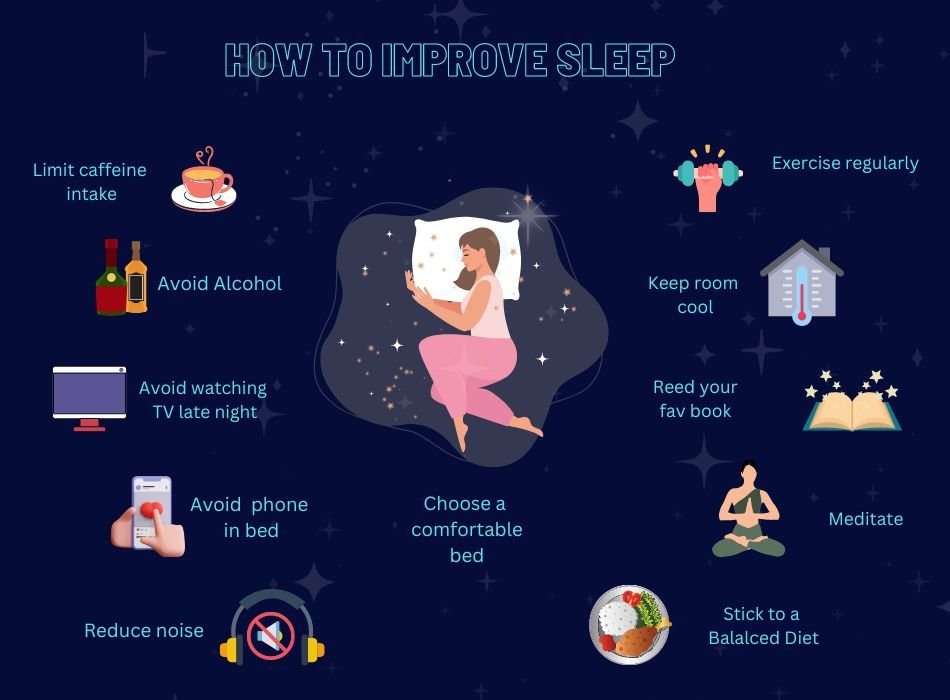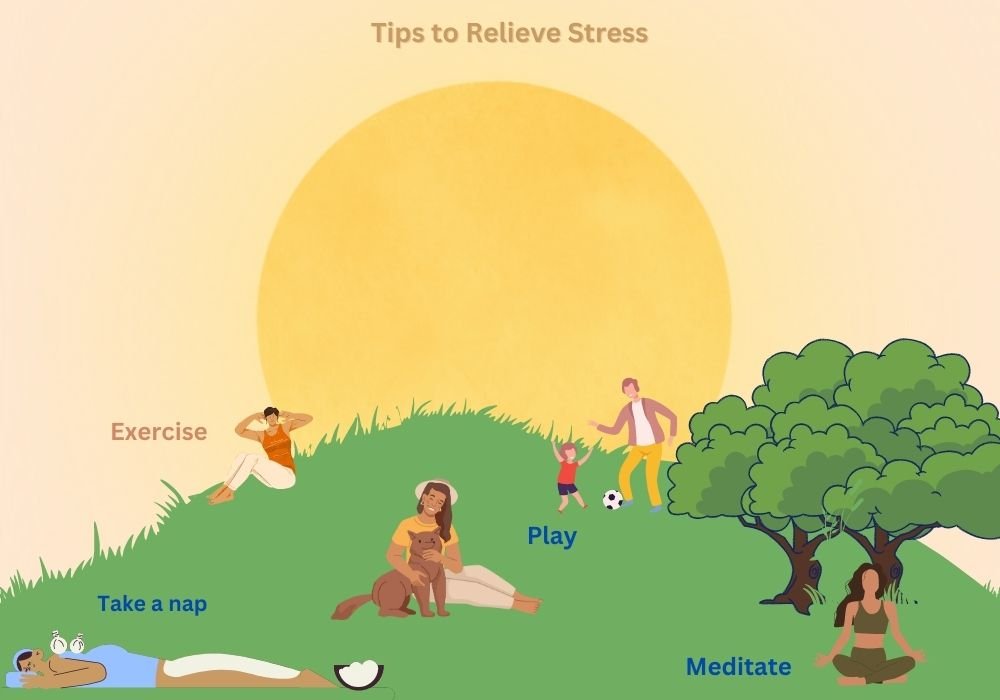When you’re groggy in the morning, it might be difficult to recall important details, such as the location of your keys, when you’re in a hurry to leave the house. Similarly, if you’re sleep deprived at work, you may find it difficult to concentrate and do tasks as efficiently as you could. Lack of sleep impairs cognitive abilities, including the ability to regulate appetite.
Getting sufficient sleep at night is essential if you want to stay concentrated throughout the day. Unfortunately, there isn’t any magic wand to make that happen. However, there are some easy things you can do to improve the quality of your sleep.
1. Get enough sleep
In general, eight hours of sleep is the maximum you should give yourself. Medical professionals advise adults who are in good health to get a minimum of seven hours of sleep every night. The average person only requires up to eight hours in bed in order to feel refreshed. So, sleep early and get enough sleep before you wake up.
2. Follow a sleep Schedule
Sleep is not only good for your physical health but also for your mental health. You feel more energized and vigilant throughout the day when you get enough sleep. You may even find yourself having fewer headaches and feeling less stressed out.
Follow a consistent schedule for going to bed and getting up, even on the weekends. Maintaining a routine helps your body retain its natural sleep-wake cycle.
3. Avoid caffeine
Caffeine is known to cause insomnia, so if you have trouble sleeping, try cutting back on coffee and tea. Caffeine stimulates your nervous system and causes anxiety, making it harder to fall asleep. Instead, opt for herbal teas, hot chocolate, warm milk, or decaf coffee that gives energy and improves sleep.
4. Exercise regularly
Exercise helps keep your body active and relaxed, which makes it easier to fall asleep. Going out for a walk after dinner, taking a yoga class, or doing some push-ups before bedtime might help.
5. Eat well
Maintaining a balanced diet is important for your overall health, including your sleep habits. Ensure you eat plenty of protein, fiber, and complex carbs, and avoid sugary foods and alcohol. Also, avoid eating junk or heavy meals at night because discomfort might keep you awake.
6. Plan your Evening Meal
Finish your evening meal several hours before bedtime, and avoid things that may cause disturbance and indigestion. If you become hungry at night, munch on items that won’t disrupt your sleep, such as dairy products and carbs.
7. Relax
If you’re having trouble falling asleep or stressed out, try relaxing before bedtime. Take a bath, read a good book, meditate, or listen to soothing music. Try whatever you are comfortable with.
8. Don’t watch TV right before bed
Watching television can disrupt your sleep cycle. It may cause you to wake up earlier than usual. Turn off the lights and put away any electronics at least two hours before bedtime.
9. Keep your room dark, quiet and cool
Keeping your bedroom cool reduces the amount of cortisol (a hormone released when we are anxious) in our bodies. Cortisol levels rise when the temperature gets warmer, which makes it difficult to fall asleep and stay asleep.
According to research, 73% of people say that a room with low light is better for quality sleep. So, the room should have as little light as possible to improve sleep at night.
10. Nap Early or Not at All
Many individuals regularly snooze during the day. However, afternoon naps may be a contributing factor for people who have difficulty falling asleep or remaining asleep during the night. This is because naps taken later in the day reduce the urge to sleep. If you really have to take a snooze, the best time to do it is prior to 5 o’clock and for as little time as possible to sleep better at night.
11. Choose a comfortable bed, mattress, and pillow
In addition to the relaxing surroundings, the quality of the bed might impact nighttime sleep.
Research on the advantages of a new mattress revealed a 57% reduction in back pain, a 60% reduction in shoulder discomfort, and a 59% reduction in back stiffness. Additionally, it enhanced sleep quality by 60%.
It is suggested that you replace your bedding every 5–8 years to improve sleep.
Take Away Message
Creating a bedtime routine, exercising, a noise-free environment, comfortable bedding, avoiding alcohol and caffeine, avoiding exposure to blue light, maintaining a balanced diet, and a cool and dark room can help improve sleep.
But if that does not help, consult your physician before taking the sleep medicine, especially if you are already on medication or suffering from any disease.



